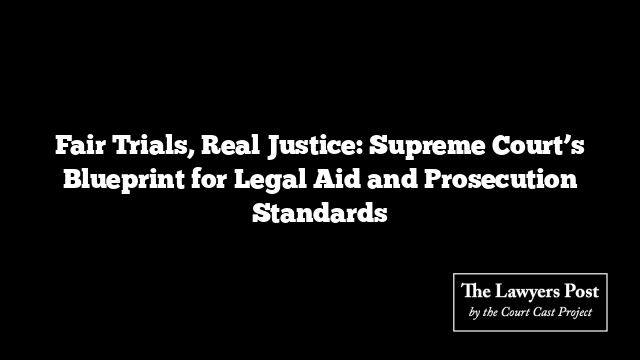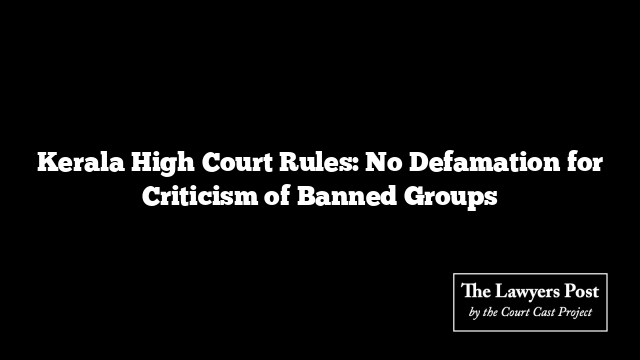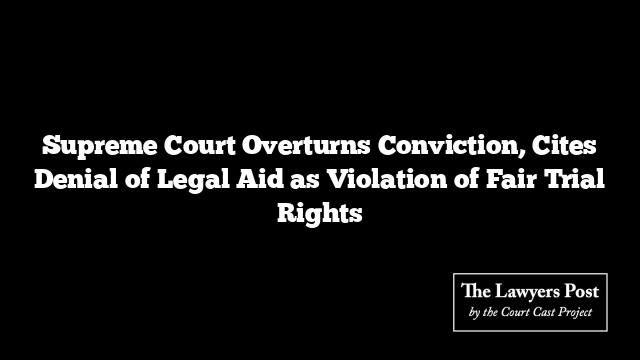The Supreme Court has issued a comprehensive set of directives aimed at ensuring fair trials through effective legal aid and prosecutorial integrity. These guidelines come in light of a case overturning the conviction of a man accused of heinous crimes, citing the absence of proper legal representation and procedural lapses.
Key Highlights from the Supreme Court’s Directives:
- Legal Aid as a Fundamental Right: The Court emphasized that every accused individual, particularly those unable to afford representation, must receive effective legal aid at all critical stages of the trial—from remand to appeal. In serious cases involving life sentences or the death penalty, seasoned legal practitioners with at least a decade of experience are to be appointed.
- Prosecution’s Role in Fair Trials: Prosecutors bear a dual responsibility: ensuring guilty parties are punished while safeguarding against procedural errors that could disadvantage the accused. This includes assisting courts in framing questions under Section 313 of the Criminal Procedure Code and flagging oversights that may arise during evidence recording.
- Continuous Representation: To maintain consistency, the same legal aid advocate should represent the accused throughout the trial unless extraordinary circumstances dictate otherwise.
- Competency and Training for Legal Aid Lawyers: Legal aid advocates must possess a robust understanding of criminal law and procedural statutes. The Legal Services Authorities are tasked with monitoring performance and providing structured training programs for new appointees, including mentorship from senior advocates.
- Special Measures for Complex Cases: For trials involving intricate legal or factual questions, the Court recommended appointing senior legal professionals outside the standard legal aid panel to ensure high-quality defense.
- Enforcement and Monitoring: State Legal Services Authorities must actively oversee the work of legal aid advocates, ensuring punctuality and adherence to trial schedules.
The Case That Triggered Reform:
The Supreme Court’s intervention stems from a trial where the accused, charged with the rape and murder of a minor, was deprived of legal counsel and denied access to incriminating evidence during cross-examination. The Court’s decision underscores that failure to provide effective legal aid violates Article 21 of the Constitution, which guarantees the right to a fair trial.
These guidelines aim to strengthen India’s justice system, reinforcing the principle that justice is not only about punishment but also about ensuring procedural fairness and safeguarding fundamental rights.





